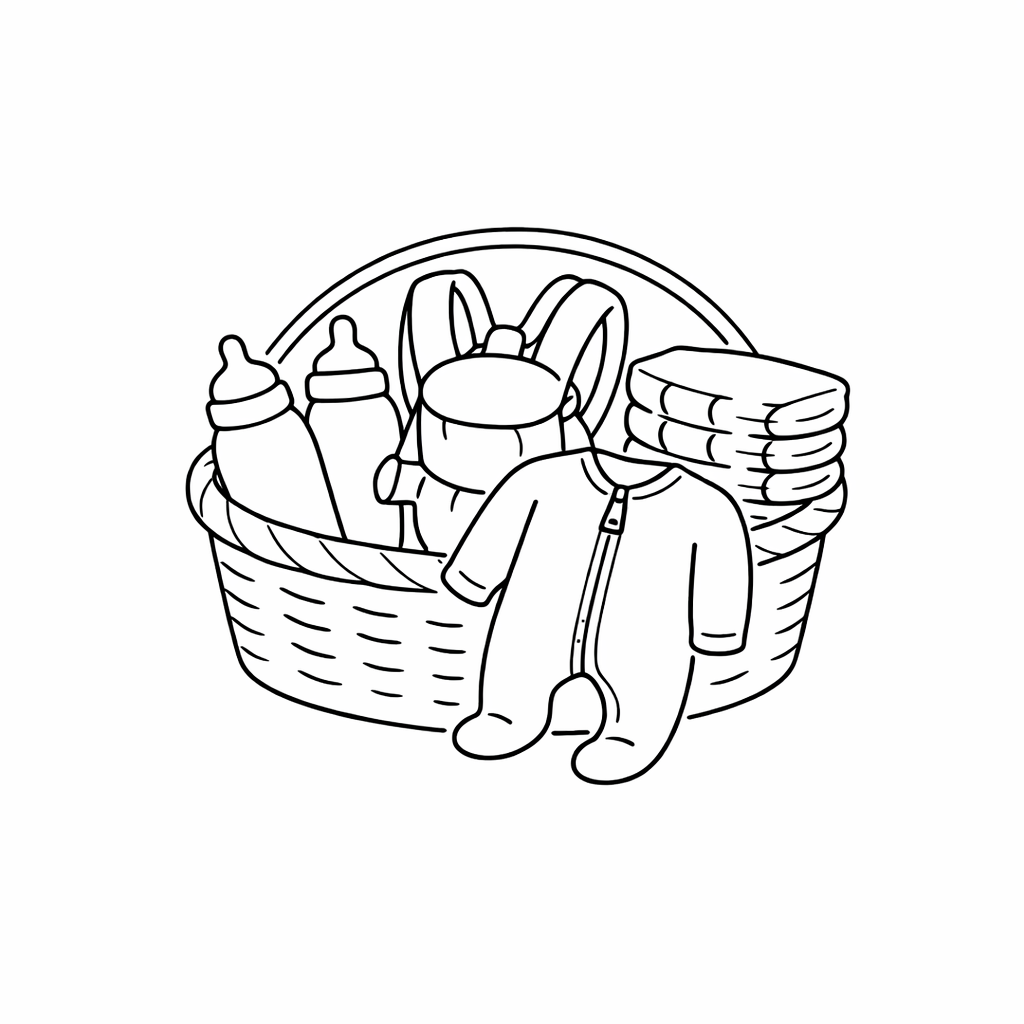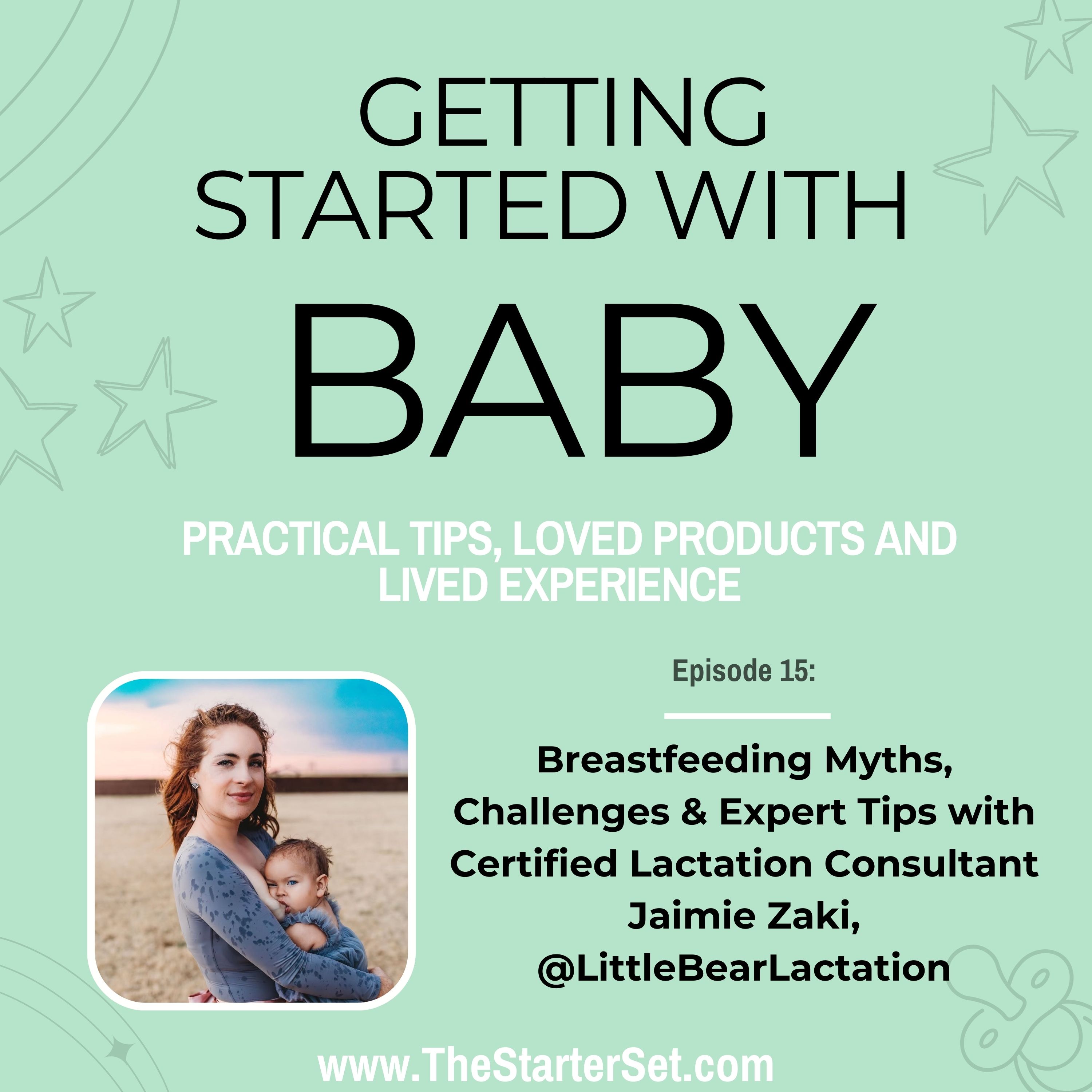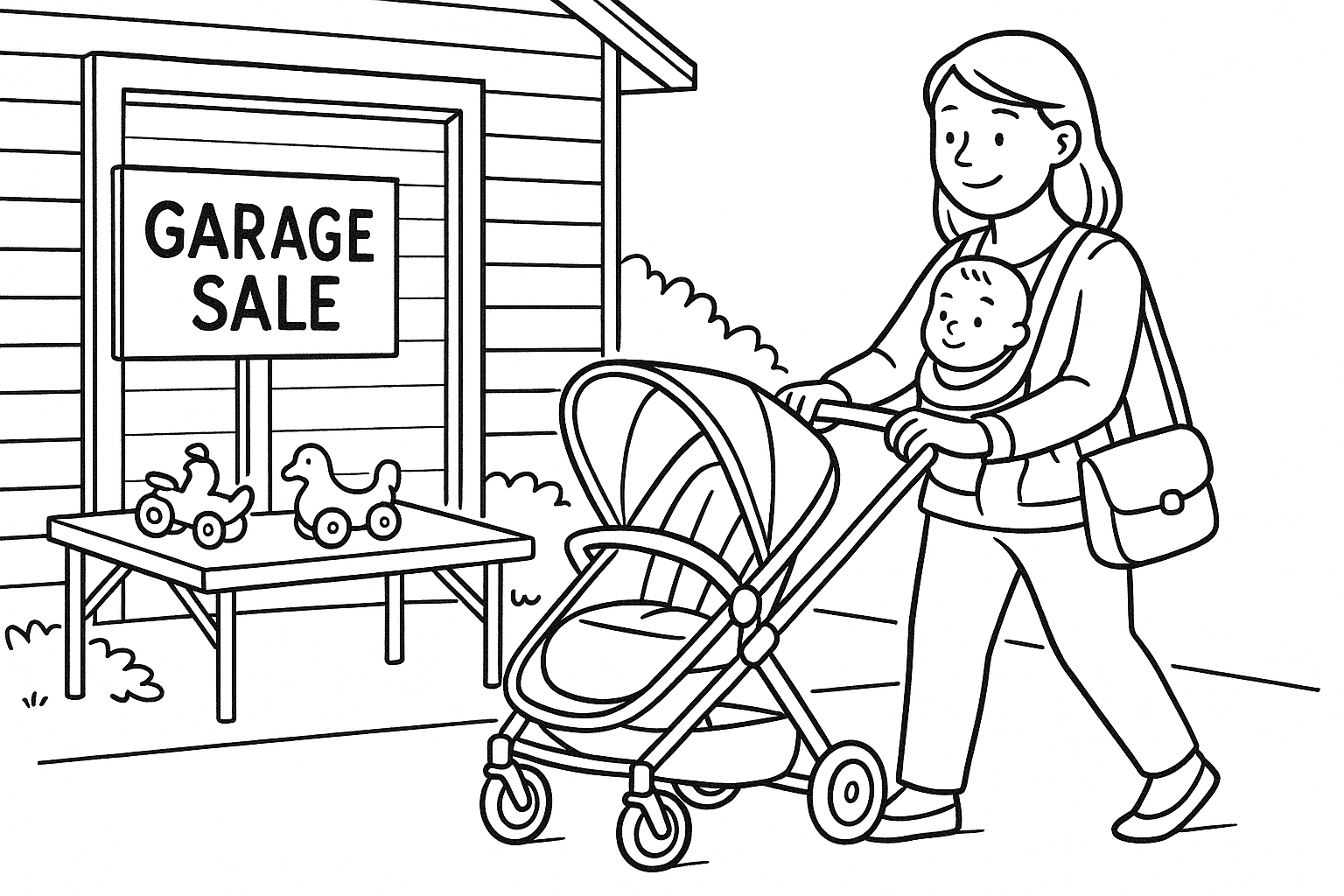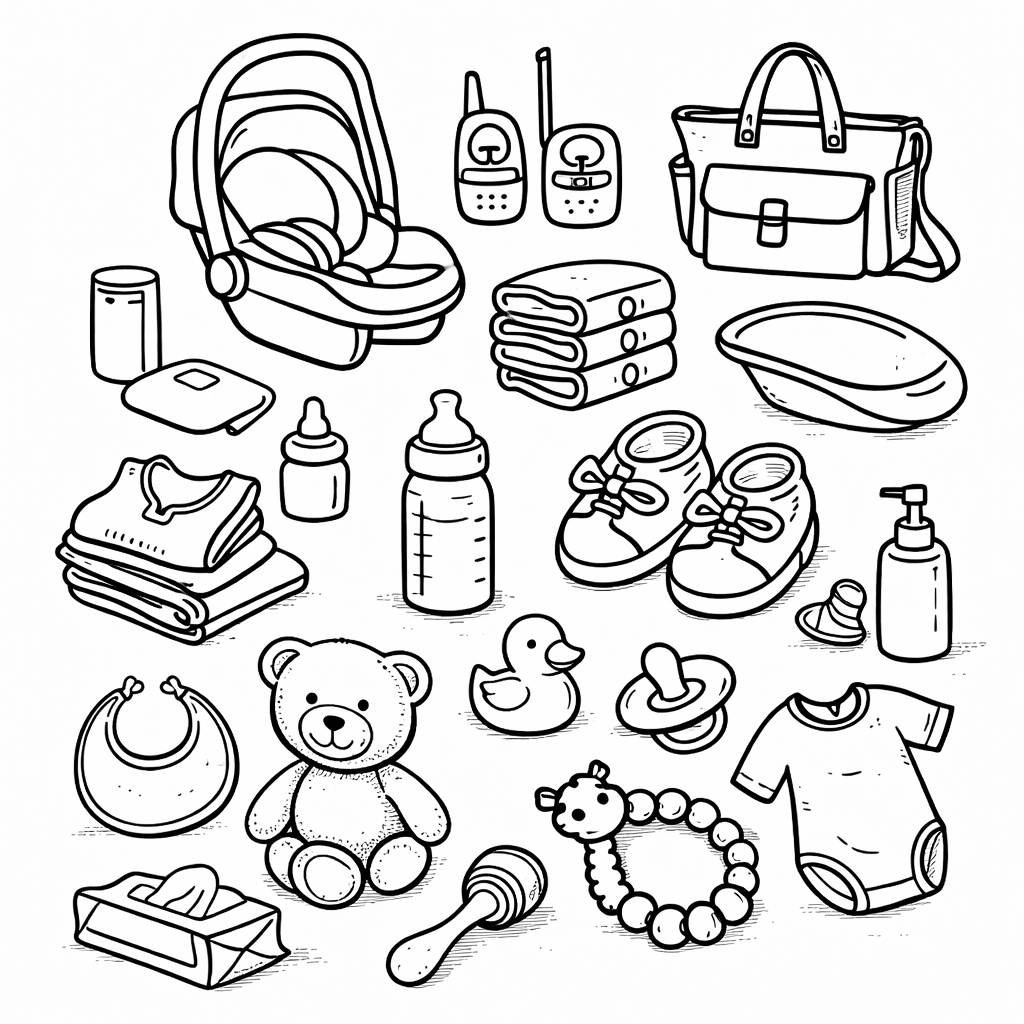As a parent, I've heard a lot of "groundbreaking" parenting insights that basically tell me what I already know. When I stumbled on U.S. Surgeon General Vivek Murthy's "Parents Under Pressure," a public health advisory released in August 2024 – it felt different. A prominent figure was confirming what we've all been sharing on the playground already – modern parenting is HARD (yes in all caps). And it's not just about the cost of raising kids, it's about the whole exhausting, overwhelming, beautiful mess of the parenting experience.
Sure, if you're a parent it's not breaking news by any means. Still, the numbers hit home. Nearly 48% of parents—that's almost half of us—feel completely overwhelmed by stress on most days. But here's the real kicker—41% of parents are so stressed they cannot function properly most days. We're not talking about having a rough day or feeling a little frazzled after everyone forgot to put their shoes on again. We're talking about a genuine public health crisis where nearly half of American parents feel like they're drowning.
The first step, of course, is admitting there's a problem. Now we have confirmation from a public health official that modern parenting is filled with sometimes unfulfillable expectations. "Chasing these unreasonable [parenting] expectations has left many families feeling exhausted, burned out, and perpetually behind," Murthy writes. Honestly, "perpetually behind" might be the most accurate description of parenthood I've ever heard.
What's making parenting feel so hard
The Surgeon General's advisory doesn't sugarcoat what's driving this crisis. The culprits are probably ones you'll recognize if you've ever found yourself crying in the Target parking lot post a baby supply run.
- Money, money, money: Unsurprisingly financial strain tops the list, and honestly, can we talk about this for a second? We're dealing with a system where childcare costs can exceed your rent or mortgage for the month. Let that sink in—you might literally pay more for someone to watch your toddler than you do for your actual house. With economic concerns growing, having kids can feel like a constant game of financial Tetris where nothing quite fits and you're always one block away from game over.
- The social media pressure cooker: Look, every generation has had opinions about "correct" parenting. But today social media has turned parenting into high-stakes performance art. Take kids' birthday parties. What used to be a casual affair with kids running around outside eating cake off paper plates has somehow morphed into staying up until 2 AM hot-gluing an Instagram-worthy balloon arch while questioning all your life choices. And here's the thing we all forget in the middle of the DIY madness—that influencer you're following probably had a team of people making it all look so "effortless."
- Where did the village go: Previous generations had extended families, neighborhood networks, and community institutions to share the parenting load. These days, many of us are trying to do alone what was never meant to be done by just one or two people (and a very judgmental toddler). Geographic mobility, longer work hours, and what sociologists politely call "the erosion of social capital" have left families increasingly isolated. Translation: we're all just winging it without backup, and it shows.
- Information overload, all day every day: Parents today have access to more advice, studies, and expert opinions than any generation in history. Instead of feeling empowered, we're paralyzed by choice and constantly second-guessing ourselves. Did our parents Google "why does my baby sound like a small dinosaur when they're pooping?" I think not. Instead of finding peace in all this knowledge, we end up with five different sources to consult just to pick a pacifier, 43 conflicting studies about sleep training, and unlimited access to judgment from strangers on the internet. It's enough to make you wish your home was a Wi-Fi deadzone.
What can help you as a parent?
Here's where things get real. The typical response to parental stress has been to focus on individual solutions—better time management! Self-care routines! Meditation apps! It's understandable why people jump to these suggestions. On the surface, they seem easier to implement than, say, universal childcare. But let's be honest—adding self-care to your already impossible to-do list can feel about as helpful as someone suggesting you "just relax" while your toddler is having a meltdown in the cereal aisle.
The Surgeon General's advisory makes it crystal clear that individual band-aids, while helpful, aren't enough to fix it all. The advisory explicitly states: "It will require effective policy, strengthened programs, and meaningful culture change." This isn't about teaching us to cope better with impossible circumstances—it's about changing the circumstances themselves so we're not all just barely surviving.
While we could spend forever talking about the policy changes we desperately need—universal childcare, actual parental leave, flexible work that doesn't disappear as COVID restrictions ease—if you're reading this at 11 PM after finally getting your baby to sleep, you need help that exists right now. Here are real, actionable resources that can help today:
Financial Support & Resources
- Financial Help for Childcare is available to families across all income levels through various programs and benefits. Families can take advantage of the Child Tax Credit (up to $2,000 per child dependent on income) and Dependent Care Flexible Spending Accounts, which allow pre-tax contributions of up to $5,000 annually. Some employers also offer childcare benefits such as partnerships with local providers or direct subsidies—check with your HR department about available options. For families meeting income requirements and other qualifications, there are often state programs offering subsidized care that can be found by looking for subsidized child care in your state. The Head Start program, which offers free preschool to low-income families may also be an option if you qualify. If you don’t qualify for free childcare, but also need assistance, some childcare facilities also provide services on a sliding scale based on income. To explore your options, contact your state's childcare assistance office, call 2-1-1 for local resources, or visit Child Care Aware of America and Benefits.gov. Faith-based and military organizations also may offer additional support.
- Support for food, healthcare and essentials: Comprehensive financial support for children's basic needs is available through multiple programs designed to help families ensure their children receive proper nutrition, healthcare, and other essential services. For nutrition assistance, families can access the Supplemental Nutrition Assistance Program (SNAP) for grocery purchases, the Women, Infants, and Children (WIC) program for pregnant women and children under 5, free and reduced-price school meals, and the Summer Food Service Program during school breaks. Healthcare support includes Medicaid and the Children's Health Insurance Program (CHIP) which provide low-cost or free medical coverage for children, while the Vaccines for Children program offers free immunizations. Additional assistance comes through the Low Income Home Energy Assistance Program (LIHEAP) for utility bills, Temporary Assistance for Needy Families (TANF) for cash assistance, housing vouchers through local housing authorities, and emergency assistance programs for crisis situations. To find these services, contact your local Department of Social Services or visit Benefits.gov to screen for eligibility across multiple programs.
Mental Health & Stress Management
- Professional Mental Health Support and Counseling Professional mental health services provide essential support for parents dealing with stress, anxiety, depression, and family challenges. The National Maternal Mental Health Hotline (1-833-TLC-MAMA) connects you with a trained counselor and can provide contacts for local support groups and organizations. For immediate crisis situations, the Crisis Text Line (text HOME to 741741) provides free, 24/7 assistance with volunteers specifically trained in a variety of issues parents face including anxiety and postpartum depression. Online therapy platforms like BetterHelp and Talkspace offer flexible scheduling and often accept insurance, with many therapists specializing in parental stress and family issues. NAMI(National Alliance on Mental Illness) provides free support groups for families dealing with mental health challenges through local chapters. Similar to childcare benefits, your employer may also offer employee assistance programs with access to short-term counseling and other resources. Counseling on family topics is also available through religious organizations and for military families.
- Meditation and Wellness Resources Self-care and wellness tools help parents develop daily coping strategies and stress management techniques to maintain their mental health. Mindfulness apps like Calm and Headspace offer specific meditations and sleep stories designed for stressed parents, with many providing free content or trial periods to make these resources accessible. These apps focus on helping parents build resilience, manage the pressure of parenting, and create moments of peace in their daily routines. Combined with professional support when needed, these wellness resources recognize that parental mental health is essential for family wellbeing and provide practical tools parents can use anytime to support their emotional health
Community Support & Connection
- Online and Social Media Communities: Building connections with other parents has become easier through digital platforms that help families find both local and virtual support and resources. Parents can search Meetup.com for local parent groups, playgroups, and family activities, with many cities offering groups specifically for overwhelmed parents or single parents. Facebook and Nextdoor Groups provide another valuable resource, as most communities have active local parenting groups that share resources, organize playdates, and provide mutual support for families navigating similar challenges. For strictly online advice, Reddit offers numerous parenting communities like r/Pregnant, r/Parenting, r/BeyondtheBump, r/Mommit, and r/daddit where parents share experiences, ask questions, and offer support 24/7. Other online parenting forums such as BabyCenter, What to Expect, and The Bump provide moderated discussion spaces, expert advice, and community support for parents at different stages of their journey.
- Local Community Resources and Organizations: Community-based support often provides the most accessible and immediate help for families seeking connection and assistance. Check your state, county or city for non-profit organizations offering local support including peer support groups, counseling and access to mother’s helpers. Local libraries and community centers serve as excellent hubs for family support as well, offering free programs like story time, playtime, parenting classes, and community events. Religious communities, including churches, synagogues, and mosques, frequently offer family support services, childcare assistance, and community programs that are open to all families regardless of religious affiliation.
Practical Daily Support
- Community and Parent Networks Community-based support systems provide help through both neighborhood resource sharing and parent-to-parent networks. Buy Nothing Groups on Facebook create hyperlocal communities where neighbors share baby gear, kids' clothes, and household items for free, while local food banks offer groceries and emergency food assistance without requiring proof of income (find locations at feedingamerica.org). Meal Train coordinates community support during overwhelming periods by organizing meals. Parent swap networks allow families to trade childcare, carpools, and errands with other parents from their children's schools or activities, creating ongoing support systems that benefit multiple families while building community connections.
- Professional Childcare and Family Support Services: Professional services provide reliable childcare and specialized family assistance tailored to different needs and budgets. Platforms like Care.com and Sittercity.com help families find vetted babysitters, nannies, and occasional help, with many families sharing sitters to reduce costs. Mother's helpers offer lighter assistance while parents remain home, providing support with childcare, light housework, or meal preparation at lower rates than full babysitting. Doulas provide specialized support during pregnancy, birth, and postpartum periods, offering emotional, physical, and informational assistance to help families navigate major transitions and early parenting challenges.
Information & Education
- Evidence-Based Parenting Information Reliable, research-backed parenting guidance helps families make informed decisions without adding unnecessary anxiety. The American Academy of Pediatrics (AAP) provides trusted, evidence-based parenting information at healthychildren.org, offering straightforward advice that doesn't contribute to parenting pressure. Zero to Three offers resources specifically for parents of babies and toddlers that focus on child development without overwhelming expectations. These resources prioritize practical, supportive guidance grounded in child development research. When parenting advice becomes overwhelming, consider taking a break from social media and parenting content online, as constant exposure to different opinions and "perfect parenting" posts can increase anxiety and self-doubt.
The Takeaway
The good news? You're not imagining it—parenting really has gotten harder, and recognizing that is actually the first step toward making it easier. The resources above are just a starting point. There are countless other programs, communities, and support systems out there that didn't make this list (trust me, we could have written a novel). Maybe you'll discover that your local library has surprisingly decent coffee and toddler programs, or that your neighbor down the street has also been Googling "is it normal for my kid to lick everything."
The reality is that reaching out often reveals you're not the only one barely keeping it together—and sometimes the best support comes from the most unexpected places, like the parent at pickup who looks as tired as you feel. While we're all waiting for those bigger systemic changes (looking at you, universal childcare), remember that small acts of connection and support can genuinely make your days more manageable.
You don't have to tackle everything at once or become a resource-gathering overachiever. Start with what feels doable, celebrate when you manage to shower AND feed everyone in the same day, and remember that asking for help isn't admitting defeat—it's just good strategy.









.png)